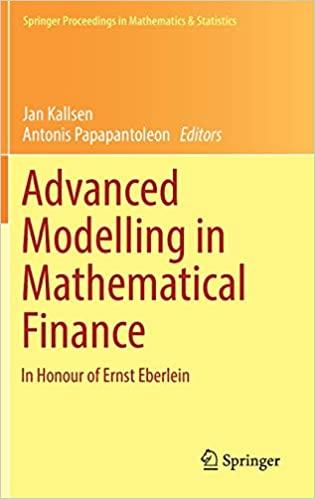Question
ABC stock has current price (So): $140/share. Investors hold a portfolio of assets: * ABC stock 100000 shares * Money of 10 billion USD Investors
ABC stock has current price (So): $140/share.
Investors hold a portfolio of assets: * ABC stock 100000 shares * Money of 10 billion USD
Investors own the option to buy ABC shares * Trading quantity is 100,000 shares * Exercise price is $100/share * American-style options, expiring on May 29, January +1
Investors can make term deposits at banks with interest rates: 10%/year, paid at the end of the term
Suppose, the company issuing shares ABC does not pay dividends within the next year.
Investors consider 1 of 3 investment strategies as follows: (1) Sell currently held shares, then deposit all proceeds to the bank along with the existing cash balance, for a term of 1 year and keep the call option until maturity (2) Exercise the buy option now (May 30/N), and continue to hold all existing shares until May 29/Y+1 (3) Deposit all available money to the bank, and continue to hold existing shares and purchase options until May 29/N+1
Set up an expression to calculate the value received by the investor on May 29/N+1 according to St for each strategy. {St is the future price of ABC stock after 1 year, unit: USD/share} Is it possible to identify investment strategies that should not be implemented? Why?
Step by Step Solution
There are 3 Steps involved in it
Step: 1

Get Instant Access to Expert-Tailored Solutions
See step-by-step solutions with expert insights and AI powered tools for academic success
Step: 2

Step: 3

Ace Your Homework with AI
Get the answers you need in no time with our AI-driven, step-by-step assistance
Get Started


